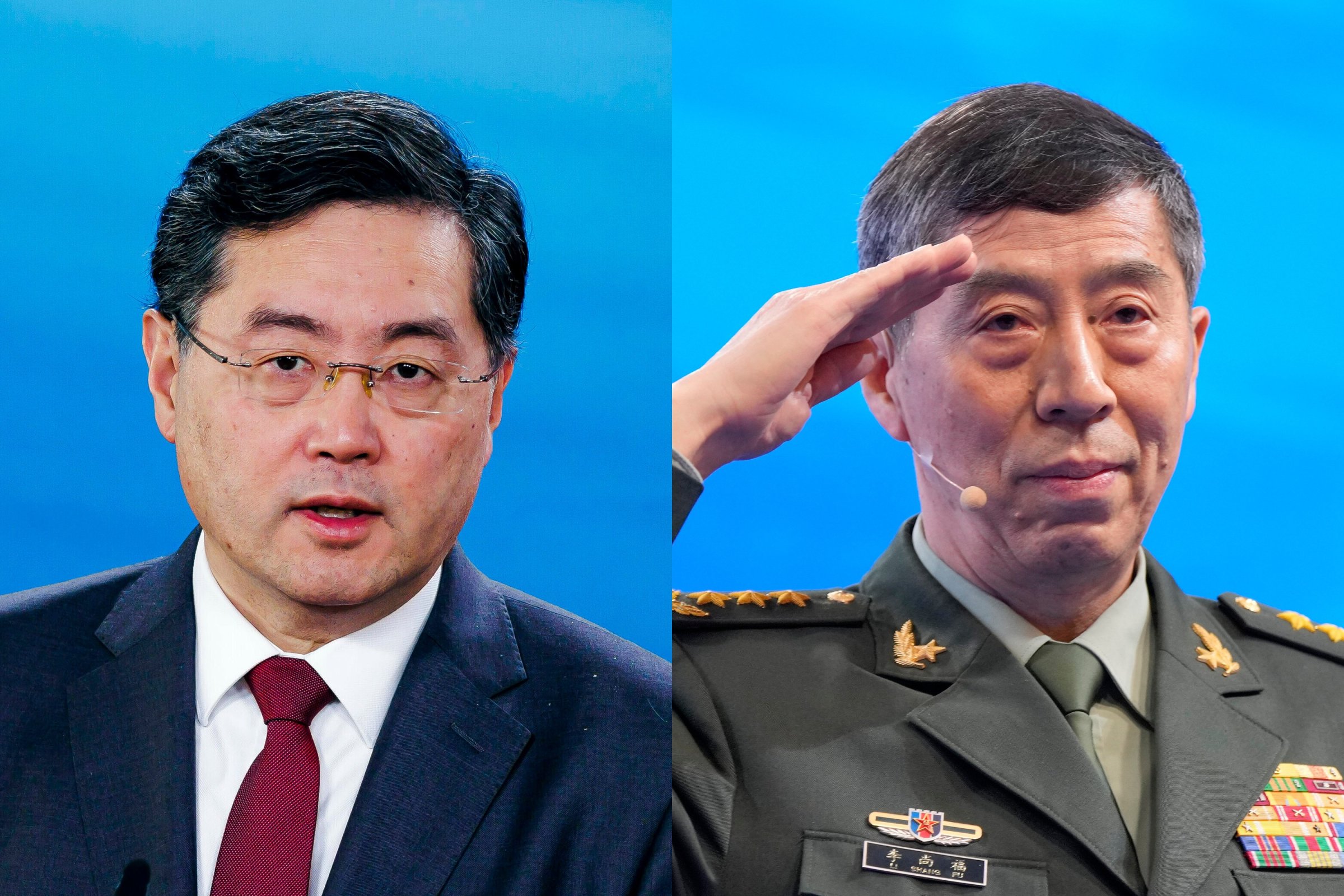
General Li Shangfu, China’s defense minister, was last seen in public on Aug. 29, when he gave a nondescript speech at a China-Africa security forum in Beijing. When he conspicuously didn’t show up to an international meeting he was expected to attend in early September, Chinese officials said it was due to a “health condition.” Reports last week suggest he’s actually under investigation for corruption and set to be removed, but a Chinese spokesperson would not confirm such to reporters.
Li’s mysterious absence follows the similar disappearance of China’s former foreign minister Qin Gang, who was last seen in public on June 25 before being unceremoniously replaced from his cabinet post by his predecessor Wang Yi. Qin—who was also initially said to be facing unspecified “health issues” amid intense speculation and rumors of an extramarital affair—has still not reappeared in public.
That two high-profile ministers have gone missing without explanation in a matter of months underscores the opacity and unpredictability of Xi Jinping’s government.
Read More: The World's Future Is in the Hands of Chinese President Xi Jinping
Such a dramatic upheaval among the highest ranks of the Chinese Communist Party is quite unusual, Victor Shih, a professor of political science and director of the 21st Century China Center at the University of California in San Diego, tells TIME. Government officials are extensively vetted before appointments and promotions to ensure stability, and Li and Qin had just been elevated to the State Council, the country’s top administrative body, earlier this year. “You would think that everyone who’s left has already shown that they’re very loyal to [Xi],” Shih says, “or they would not be in senior positions.”
But more than just generating intrigue, the abrupt, unexplained oustings of Li and Qin also threaten, experts say, to further complicate the already difficult challenge of working with China—for foreign businesses and foreign governments alike.
“Businesses do not like uncertainties of any kind,” Chen Gang, deputy director of the East Asia Institute at the National University of Singapore, tells TIME. China’s lack of transparency—the government cut off international access to public data and has stopped publishing a number of national economic indicators, such as the youth unemployment rate—reduces confidence and heightens risk for foreign investors. The looming threat, implied by the sudden apparent removal of two officials who operated in prominent diplomatic roles, that the government could change direction at a moment’s notice exacerbates the uncertainty of doing business with China, Chen says. That said, he adds, many would welcome a shift in China’s current approach to foreign engagement, which has grown increasingly hostile, and the recent cabinet shakeup could be a “window of opportunity” for that to take place.
Read More: China’s Expanded Anti-Espionage Law Threatens Business Consultants and Advisers
But while it’s unclear yet if Xi’s foreign or defense policy will actually change as a result, Drew Thompson, a former Pentagon official and senior fellow at the Lee Kuan Yew School of Public Policy at the National University of Singapore, tells TIME, the turnover itself highlights the degree to which Xi has consolidated power and made everyone else in government replaceable.
Even as China’s domestic economy is in turmoil and doubts reportedly linger among CCP elders about Xi’s competence, current Chinese officials are only likely to become even more “afraid of making decisions or speaking out,” says Thompson.
“This presents a tremendous challenge to companies seeking to influence or even inform decision makers in China about the impact of their policies,” he adds. “As foreign interlocutors seek to engage with Chinese counterparts, they’re not engaging with decision makers in the party; they’re engaging with implementers.”
More Must-Reads from TIME
- Cybersecurity Experts Are Sounding the Alarm on DOGE
- Meet the 2025 Women of the Year
- The Harsh Truth About Disability Inclusion
- Why Do More Young Adults Have Cancer?
- Colman Domingo Leads With Radical Love
- How to Get Better at Doing Things Alone
- Michelle Zauner Stares Down the Darkness
Contact us at letters@time.com